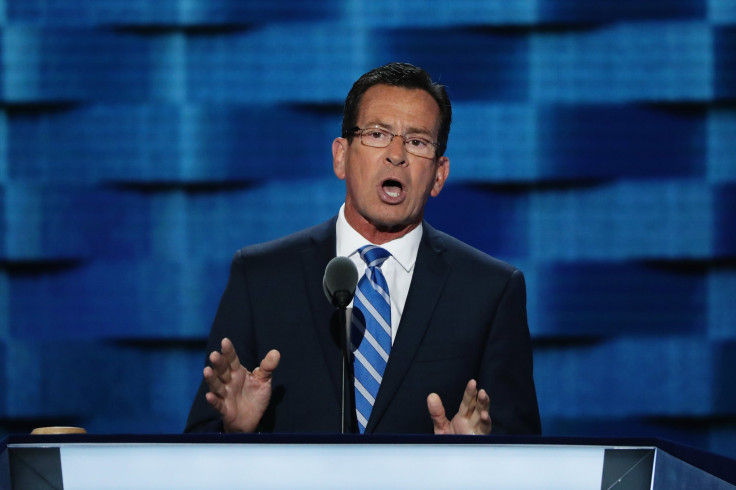Money And Politics: Gov. Malloy Slashes Watchdog Budgets Amid Ethics and Campaign Finance Investigations

Facing high-profile investigations of his administration and state party, Connecticut Gov. Dannel Malloy is moving to slash the budgets of watchdog agencies that enforce ethics, campaign finance and open records laws. The move is a reversal from only a few months ago — before the new probes began — when Malloy’s administration said it would not enact such cuts to the agencies, whose budgets are covered by a law designed to protect them from gubernatorial retribution.
In mid-June, the Connecticut Office of State Ethics voted to launch an inquiry into whether Malloy’s administration had violated conflict-of-interest laws when it appointed former Cigna lobbyist Katharine Wade to a top post leading the regulatory review of Cigna’s proposed merger with Anthem. The move followed an International Business Times investigation that used open records requests to document Wade’s involvement in the merger review.
Less than two weeks after the probe was launched, the ethics office said, Malloy’s administration announced that the agency’s budget would be cut, as would the budgets for the state’s Freedom of Information Commission and the State Elections Enforcement Commission. At the time, the latter agency had just forced Malloy’s state Democratic Party to pay $325,000 to settle a case about the party’s use of state contractor campaign cash to help Malloy’s reelection. That settlement preceded a new — and now ongoing — federal grand jury probe into the issue.
“Gov. Malloy appears to be putting his own political interests over the state’s long-term interest in honest and accountable government,” said Connecticut Common Cause executive director Cheri Quickmire, in a press release noting that the budget cuts come at the very moment Malloy’s administration is facing two investigations.
Malloy — who had previously tried to suspend an anti-corruption agency that regulates state contracting — declined to comment on the cuts. His office instead forwarded a letter from the Democratic governor’s budget director, Benjamin Barnes, in which he defended the reductions as a necessary component of a larger emergency budget-cutting measure designed to address the state’s fiscal challenges.
“Your agencies were not unfairly or disproportionately targeted in assigning the holdbacks: all facets of state government, including the Legislative and Judicial branches, are coping with reduced resources,” Barnes told the agencies. “I can only hope that you continue to recognize your shared responsibility to act in partnership rather than contest the application of the holdbacks.”
The heads of the watchdog agencies argued that the cuts are impermissible under a 2004 law passed amid the corruption scandal that led to the criminal conviction of then-Republican Gov. John Rowland. Back then, after Rowland pushed to slash the watchdog agencies’ budgets, Connecticut lawmakers passed a bill aimed at preventing governors from unilaterally enacting such cuts in the future.
“The legislature discussed at length the importance of these provisions when they were enacted,” the agency heads wrote to Malloy’s administration about the 3 percent cuts to their budgets. “Many legislators noted that the independence of the watchdogs relies on their ability to be free from budgetary reductions imposed by a single elected executive. The point was specifically made that once the legislature has approved the appropriations for the three agencies, the Governor cannot reduce allotments.”
A senior legislator in Malloy’s own party agreed with that assessment.
“From Watergate to Rowland-gate, we are all too familiar with the willful destruction of the public’s trust by those in power,” said Rep. Toni Walker, a Democrat who co-chairs the state’s appropriations committee. “The watchdogs cannot face additional cuts outside of the budget process and do their jobs effectively.”
© Copyright IBTimes 2024. All rights reserved.






















